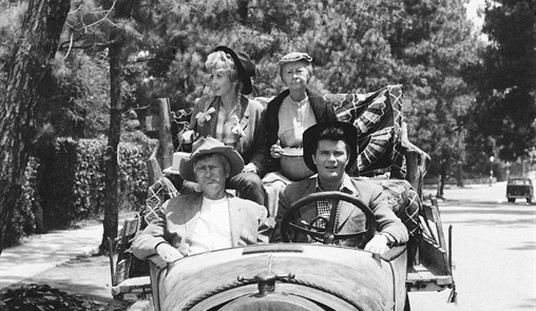As this editorial in Opinion Journal notes, Gerald Ford arguably did as a good a job as possible, given the astonishingly weak hand he was dealt in the mid-1970s. As the Journal notes, the 1970s was the decade of “America’s Suicide Attempt”, as historian Paul Johnson dubbed it:
It is true that Ford was something of an accidental President, the only one in U.S. history never elected as either President or Vice President. Before Nixon picked him to replace the disgraced Spiro Agnew as his Vice President, Ford had been contemplating retirement from his Grand Rapids, Michigan, House seat. But like another unlikely President from the Midwest, Harry Truman, he had reserves of honesty and fortitude that served him well.
He made a particular contribution in pardoning Nixon, though he knew Nixon’s enemies would accuse him of a quid pro quo. The decision cost him dearly in the polls and may have cost him the election in 1976, but it also spared the country from years of division over a criminal trial that special prosecutor Leon Jaworski seemed determined to pursue.
Congress had trampled over a weakened Nixon, and another Ford contribution was restoring some measure of executive authority. Far more than Nixon, he used his veto pen (66 times in 895 days), blunting liberal excesses after Democrats picked up 46 House seats in 1974. He also deserves credit for resisting the isolationism that was rampant as the Vietnam War wound down. It was a rare period in postwar U.S. history when the public favored spending less on defense.
Democrats exploited the mood in early 1975 to block Ford’s funding request for our allies in South Vietnam, as the North began its offensive. Ford pleaded with Congress that “American unwillingness to provide adequate assistance to allies fighting for their lives could seriously affect our credibility throughout the world as an ally,” but to no avail. Saigon fell by April, and the boat people and massacres in Southeast Asia soon followed. Thus one irony of this week’s praise for Ford as a unifying President: At the time, he was mocked as clumsy and dull, and he was vilified for blocking Congressional priorities. Any of this sound familiar?
Yes–with the exception of villifying Richard Nixon (whose paranoia helped furnish his own noose), the playbook of the left for attacking Republican presidents has changed little since the days of Calvin Coolidge in the 1920s, and certainly since Ike in the 1950s.
And incoming Senate Majority Leader Harry Reid is living up to it; apparently he’d rather be exploring Inca ruins in South America than attending a former president’s funeral. And Jules Crittenden writes:
Last night we saw that Wonkette couldn’t wait for the funeral to start bashing Gerald Ford.
Here comes Bob Woodward, who can’t wait until Ford is cold to start using him to bash Bush.
Not entirely surprisingly, Thomas DeFrank of The NY Daily News has a different take on Ford’s opinions of Bush and Iraq than “the boring fabulist“, as Peggy Noonan recently dubbed Woodward.
Update: On the other hand, “Even if [Reid’s absence during Ford’s funeral] is deliberate, look at it this way










Join the conversation as a VIP Member